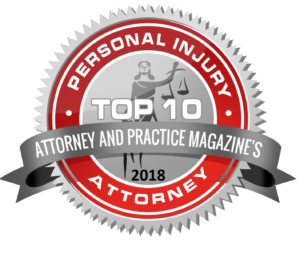In Virginia, if you are injured on someone else’s property, whether it’s a slip and fall at a grocery store, a dog bite in a neighbor’s yard, or any other kind of injury that happens on another person’s property, you might have the right to file a premise liability claim. Premise liability refers to the legal responsibility that property owners have to maintain safe conditions on their property. When a person gets hurt because the property owner didn’t take proper care, the injured person can seek compensation for their injuries. However, it’s important to understand that time is a critical factor in filing a claim. In Virginia, like in many other states, the law sets a specific time limit on how long you have to bring a premise liability lawsuit to court. This time limit is known as the statute of limitations. If you don’t file your claim within the allowed time, you might lose the chance to seek compensation, no matter how serious your injuries are. At, NovaLegalGroup, P.C., we are here to guide you through the legal process and help you navigate the complexities of your case.

What Is a Statute of Limitations?
A statute of limitations is a law that sets a deadline for filing a lawsuit. These laws exist to encourage people to bring their claims to court while evidence is still fresh and witnesses can remember details about the event. In Virginia, different kinds of cases have different deadlines. For example, the statute of limitations for personal injury cases is typically different from the deadline for filing a claim related to property damage or a contract dispute. When it comes to premise liability cases, the law in Virginia sets a clear deadline, which must be strictly followed to ensure that you can pursue your case in court. Understanding this deadline is critical for anyone thinking about filing a premise liability claim.
How Long Is the Statute of Limitations for Premise Liability Claims in Virginia?
In Virginia, the statute of limitations for filing a premise liability claim is generally two years from the date of the injury. This means that you have two years from the day you were hurt to file a lawsuit against the property owner. If you don’t file your claim within this two-year period, the court will likely refuse to hear your case, and you will lose the chance to recover compensation for your injuries. This two-year deadline applies to most personal injury cases in Virginia, including premise liability claims, but there are some exceptions and special situations that can change this time limit.
Exceptions to the Statute of Limitations
While the two-year deadline is the general rule, there are some situations where the statute of limitations might be different. One example is if the injured person is a minor. In Virginia, if a child is injured on someone else’s property, the two-year clock doesn’t start ticking until the child turns 18. This means that a child who was hurt at the age of 12 would have until their 20th birthday to file a premise liability claim. Another exception might apply if the injured person was mentally incapacitated at the time of the injury. In such cases, the statute of limitations may be extended to allow the person to file a claim once they regain their capacity.
Additionally, in some rare cases, the statute of limitations can be paused, or “tolled,” if the property owner engaged in some kind of misconduct that prevented the injured person from filing a claim. For example, if the property owner hid evidence or misled the injured person, the court might decide to toll the statute of limitations and give the injured person more time to file their claim. However, these exceptions are rare, and most people will need to follow the standard two-year rule to ensure their case is heard.
What Happens If You Miss the Statute of Limitations?
If you fail to file your premise liability claim before the statute of limitations runs out, you will likely lose your right to seek compensation in court. Once the two-year deadline has passed, the property owner and their insurance company will almost always refuse to negotiate or settle your case because they know that you no longer have the legal right to sue. In these situations, the court will dismiss your case, and you will not be able to recover money for medical bills, lost wages, or pain and suffering. That’s why it’s crucial to act quickly if you’ve been injured on someone else’s property. Even if you think you have plenty of time, it’s always a good idea to consult with a lawyer as soon as possible to ensure that your rights are protected.
Why You Should File Your Claim Early
Although you technically have two years to file a premise liability claim in Virginia, it’s almost always better to start the process sooner rather than later. As time passes, it can become harder to gather the evidence you need to prove your case. For example, witnesses might move away or forget important details about what happened. Surveillance footage might be erased, and physical evidence like a broken staircase or wet floor might be repaired or cleaned up before it can be documented. The longer you wait to file your claim, the harder it may be to prove that the property owner was responsible for your injuries.
Filing your claim early also gives you more time to negotiate with the property owner’s insurance company. Many premise liability cases are settled out of court through negotiations, but these negotiations can take time. If you wait until the last minute to file your claim, you might feel rushed into accepting a settlement that doesn’t fully compensate you for your injuries. By starting the process early, you give yourself and your lawyer more time to build a strong case and push for the maximum compensation you deserve.
Choosing a Personal Injury Attorney Personal Injury Case TimelineRelated Videos
What to Do After a Premise Liability Injury
If you’ve been injured on someone else’s property, there are a few important steps you should take to protect your right to file a premise liability claim. First, seek medical attention right away, even if your injuries seem minor at first. Some injuries, like concussions or internal bleeding, might not be immediately obvious but can become serious if left untreated. Getting medical care right away also creates a record of your injuries, which can be helpful when you file your claim.
Second, try to gather evidence from the scene of the accident. If possible, take pictures or videos of the hazardous condition that caused your injury, such as a broken railing or a slippery floor. Get contact information for any witnesses who saw what happened, and make a note of any security cameras in the area that might have captured the accident. If you are too injured to gather this evidence yourself, ask a friend or family member to help you. The more evidence you can collect, the stronger your premise liability claim will be.
Third, report the accident to the property owner or manager. If you were injured in a store or other business, ask to speak with the manager and file an accident report. Be sure to get a copy of the report for your records. If you were injured on private property, let the property owner know about the accident as soon as possible. Failing to report the accident could hurt your chances of recovering compensation later on.
Finally, contact a lawyer who has experience handling premise liability cases in Virginia. An attorney can help you understand your rights, gather evidence, and negotiate with the property owner’s insurance company. The sooner you contact a lawyer, the more time they will have to build a strong case on your behalf.
Why the Statute of Limitations Matters for Premise Liability Cases
The statute of limitations is a crucial part of any premise liability case in Virginia. It sets a firm deadline for when you must file your claim, and missing this deadline can mean losing your chance to recover compensation for your injuries. By understanding how the statute of limitations works and taking action quickly after an injury, you can protect your legal rights and increase your chances of a successful outcome.
If you’ve been injured on someone else’s property and are thinking about filing a premise liability claim, don’t wait too long to take action. Contacting a lawyer as soon as possible is one of the best ways to make sure your claim is filed on time and that you have the strongest possible case. The two-year statute of limitations might seem like a long time, but delays in gathering evidence or negotiating with the insurance company can make the process take longer than expected. By acting early, you can give yourself the best chance of recovering the compensation you deserve for your injuries.
If you or someone you know has been injured on someone else’s property, it’s important to know your rights and take action before the statute of limitations runs out. At NovaLegalGroup, P.C., we are here to help you navigate the legal process and fight for the compensation you deserve. Contact us today for a free consultation to discuss your case. We work on a contingency fee basis, which means you don’t owe us anything unless we win your case.










